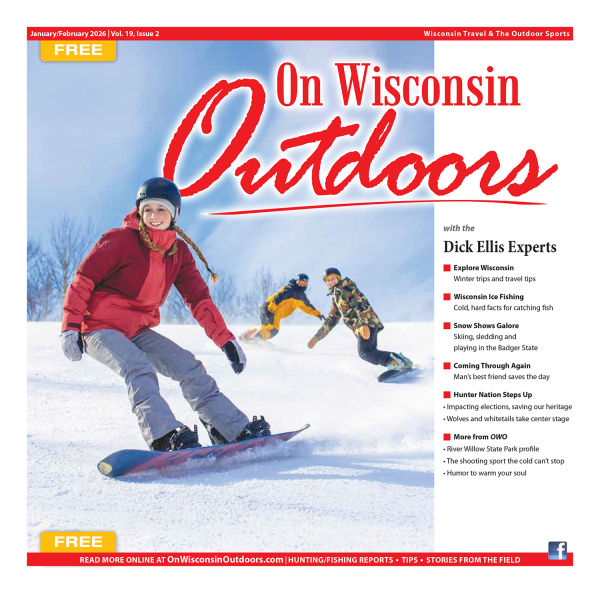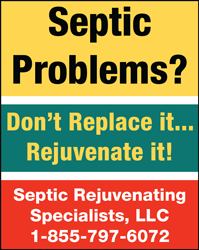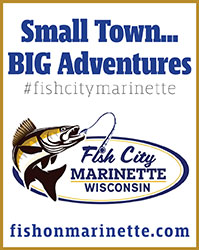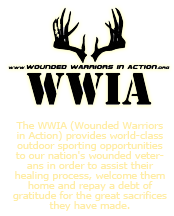| NEWS RELEASE: Natural Resources Board Approves 2020 Elk Harvest Quota |
| 05/28/2020 |
| |
|
FOR IMMEDIATE RELEASE: May 28, 2019
Contact: Kevin Wallenfang, DNR deer and elk ecologist
Phone: 608-261-7589 Email: Kevin.Wallenfang@wisconsin.gov
Natural Resources Board Approves 2020 Elk Harvest Quota
Wisconsin 2020 Elk Hunt Application Deadline Is May 31
2019 tag winner Lydia Pernsteiner Photo Credit: Lydia Pernsteiner (shared with permission)
MADISON, Wis. – The Natural Resources Board on Wednesday approved a harvest quota of 10 bulls from the northern elk herd for the 2020 Wisconsin elk hunt, matching the number of tags from the 2019 season. Of the 10 tags, five will be awarded to state hunters, and the Ojibwe tribes will receive an allocation for the remaining five elk in accordance with treaty rights.
Hunters have just a few days left to apply for the opportunity to participate in northern Wisconsin’s 2020 elk hunt, the third managed hunt in state history. Wisconsin residents can purchase elk tag applications through May 31 via Go Wild, the Wisconsin Department of Natural Resources license system. Each potential hunter may apply once online or by visiting a license agent.
The application fee is $10. For each application, $7 is earmarked for elk management and research in Wisconsin. During the first two hunting seasons, applicants generated over $400,000. These funds are being used to enhance elk habitat, which benefits both the northern and central elk herds and many other wildlife species that call the Northwoods home. Funding also contributes to ongoing elk research, monitoring and land access.
More than 60,000 Wisconsinites applied during the first two years of managed elk hunting, and nearly 25,000 have applied so far this year.
One bull tag is being raffled off by the Rocky Mountain Elk Foundation. Raffle tickets are also $10 each, and there is no limit on the number of raffle tickets an individual may purchase.
Hunters who draw a tag in the state drawing will be notified in early June. Prior to obtaining the $49 elk hunting license, all winners are required to participate in a Wisconsin elk hunter education program offered in early September. The class will cover regulations, hunting techniques and more.
The 2020 hunting season will only occur for only the northern elk herd. Although the state's central elk herd has grown steadily since reintroduction in 2015, it’s projected to reach approximately 100 this summer after calving. As such, hunting is not recommended to occur there in 2020.
Wisconsin's elk hunting season will adhere to the following guidelines:
- Season open from Oct. 17 to Nov. 15, 2020, and Dec. 10-18, 2020;
- Only bull elk may be harvested;
- Only Wisconsin residents are eligible to receive an elk tag; and
- An elk tag may be transferred to a Wisconsin resident youth hunter 17 years old or younger or to an eligible Wisconsin resident disabled hunter.
For more information regarding elk in Wisconsin, visit the DNR's elk webpage. To receive email updates regarding current translocation efforts, visit dnr.wi.gov and click on the email icon near the bottom of the page titled "subscribe for updates for DNR topics." Then follow the prompts and select the "elk in Wisconsin" and "wildlife projects" distribution lists.
|
|
|
|
|
 |
| NEWS RELEASE: Help Protect Turtles On The Move |
| 05/28/2020 |
| |
|
FOR IMMEDIATE RELEASE: May 28, 2020
Contact: Andrew Badje, DNR Natural Heritage Conservation Biologist
715-921-5886 or Andrew.badje@wisconsin.gov
Help Protect Turtles On The Move
Build A Turtle Nest Cage And Report Turtle Crossing Hotspots

Help hatch a new generation of wood turtles, a state threatened species, by reporting turtle road crossings and building a nest cage. / Photo credit: Andrew Badje
MADISON, Wis. – With a 45% increase in turtle crossing reports in the last year and a growing number of landowners taking action to protect turtle nests from raccoons, state conservation biologists are hopeful for the next generation of these hard-shelled reptiles.
The Wisconsin Department of Natural Resources’ biologists are asking the public to continue reporting turtle crossings online for the DNR’s Wisconsin Turtle Conservation Program.
“We’ve seen tremendous growth in people reporting turtle crossings, sightings of rare turtle species, and in people actively protecting turtle nests on their land,” said Andrew Badje, who coordinates the Wisconsin Turtle Conservation Program for the DNR Natural Heritage Conservation Program.
Since the DNR began requesting turtle crossing reports in 2012, the public has provided 2,903 turtle crossing location reports, with nearly 1,000 crossings identified in 2019 alone. Of those, Badje and colleagues have identified 47 locations as particularly deadly for turtles.
Learn how to build a cage to protect turtle nests when females lay eggs in residential lawns, gardens, or gravel driveways here.

Most of Wisconsin’s 11 turtle species breed in spring, laying their eggs in nests on higher ground. Turtles often cross roads to reach their upland nesting areas, and getting run over by cars is a leading cause of decline in turtle numbers in Wisconsin. Predation of turtle nests by raccoons, skunks and coyotes is another significant factor; once turtles lay their eggs they do not return, leaving the eggs and later hatchlings vulnerable.
Some species, like wood turtles, take 12 to 20 years to reach reproductive maturity, so the death of even one female turtle a year within a population can take a big toll. “Singly or combined, road mortality of adult turtles and the loss of egg clutches from nest-raiding predators can pose large problems that endanger turtle populations in Wisconsin,” Badje said.
|
DNR staff and local advocates use the road crossing information when working with local and state highway departments to address deadly road crossings and make them safer for turtles and motorists.
“Thank you to everyone who’s taken time to report a crossing or protect a nest over the years,” Badje said. “Together, we’re making a difference. We ask people to continue to report where turtles are crossing roads and to help protect nests on residential lawns, gardens or gravel driveways by building a nest cage.”
Reports from the public also help the DNR document previously unknown populations of rare turtles, update the status of known populations and provide DNR property managers information that helps them manage for turtles in their areas. As of 2019, people have reported 69 previously undocumented populations of ornate box turtles, wood turtles and Blanding’s turtles, which are respectively listed as endangered, threatened or special concern in Wisconsin. Additionally, people contributed updates on the status of another 106 known rare turtle populations.
|
|
|
|
|
 |
| NEWS RELEASE: Free Fun Weekend June 6-7 |
| 05/29/2020 |
| |
|
FOR IMMEDIATE RELEASE: May 29, 2020
Contact: DNRPress@wisconsin.gov
Let The Adventures Begin During Free Fun Weekend June 6-7
Enjoy Free Fishing, Free Trail Passes And Free State Park Admission

Enjoy free fishing, free state park admission and zero trail pass requirements on June 6-7 during Free Fun Weekend. / Photo Credit: Tim McEnroe
MADISON, Wis. – The Wisconsin Department of Natural Resources is proud to host the 8th annual Wisconsin Free Fun Weekend. Park admission fees, fishing license and trail pass requirements will be waived on June 6-7 to encourage Wisconsinites to take advantage of and enjoy Wisconsin’s outdoors.
During Free Fun Weekend June 6-7:
- No state park admission stickers or trail passes are required.
- People may fish without a fishing license or trout/salmon stamps. All other fishing regulations apply.
- ATV, UTVs, and OHMs are exempt from registration requirements. Resident and non-resident all-terrain vehicle operators do not need a trail pass to ride state ATV trails.
- Capacity limits remain in effect at some properties to limit overcrowding.
- Visitors are asked to recreate responsibly close to home and practice social distancing.
Before heading to a state park, trail or waterbody near you, here are some additional things to know:
FISHING
- Residents and non-residents will not be required to have a fishing license or trout/salmon stamps.
- All 2020-2021 fishing regulations apply including bag and length limits.
- Due to the public health risk, loaner equipment will not be available. Anglers should bring their own equipment and bait.
- Only anglers living in the same household (i.e. family members or roommates) should fish within six feet of one another.
- Events such as fishing clinics are canceled.
- Anglers are encouraged to have a backup plan in the event there is crowding or unsafe conditions where they plan to fish. We encourage everyone to fish safely and responsibly.
- Locate launches and shorefishing access points near you.
STATE PARKS
- Admission stickers will not be required.
- All state parks have updated hours of operation from 6 a.m. to 11 p.m.
- All group, family and indoor group campsites will remain closed through June 7. The status of events, reservations and camping after June 7 is currently under review.
- Some state parks have implemented capacity restrictions limiting admission. Make sure to look at current property information before visiting.
- Park-goers should remember to take their garbage and recycling home with them as most state parks, forests, and other day-use areas do not have garbage or recycling bins.
- Attractions at which social distancing cannot be achieved are closed at various properties; visit the park notices webpage for information about ongoing closures.
- All other facilities currently closed such as towers, shelters, playgrounds, nature centers, headquarters, entrance stations and concession buildings remain closed to the public.
- Fight the Bite! Ticks are out, and visitors should take precautions to prevent Lyme Disease.
- Make sure to follow the Leave No Trace principles to help protect these lands for generations to come.
TRAILS
- Trail passes will not be required for both residents and non-residents.
- All linear/rail trails will be open to the public, including ATV trails.
RESTROOMS AND BUILDINGS
- A limited number of day-use area restrooms at park properties will reopen for public use beginning Wednesday, June 3.
- All other facilities will remain closed, including towers, shelters, playgrounds, nature centers, headquarters, contact stations and concession buildings.
- Attractions where social distancing cannot be achieved will be closed as needed at various properties.
BOAT LAUNCHES
- All DNR boat launches are open.
- Anglers and recreational boaters should continue to practice social distancing and keep travel to a minimum.
- A list of launches and shorefishing access points is available on the DNR website to help anglers find fishing locations close to home.
- Boats need to be registered, which can be done either online or via mail.
- Minimize the spread of aquatic invasive species by removing plants and animals from boats before and after launching, draining all water from compartments, and never move live fish from any waterbody.
SAFETY
- Wear a lifejacket at all times when fishing from a boat, kayak, canoe, or paddleboard.
- Use boat lights after sunset.
- Never consume alcohol or drugs before or during an ATV ride or while operating a boat.
- Wear a helmet and protective clothing such as eye protection, gloves, long pants, and a long-sleeved shirt while riding an ATV.
- All children under the age of 18 MUST have a minimum Department of Transportation standard motorcycle or ATV helmet – bicycle helmets are NOT legal.
- Keep your speed in mind as weather and terrain conditions vary or change.
Free Fun Weekend has become an excellent way to enjoy the outdoors. Participants are encouraged to join the Wisconsin State Parks' OutWiGo initiative. Make sure to tag your Free Fun Weekend photos with #OutWiGo.
Keeping Wisconsinites safe remains the department's top priority. Free Fun Weekend goers are urged to continue to practice social distancing, avoid congregating in large groups, use hand sanitizer and wear masks when social distancing is difficult.
For specific information regarding COVID-19, we encourage the public to frequently monitor the DHS website for updates, and to follow @DHSWI on Facebook and Twitter, or dhs.wi on Instagram. Additional information can be found on the CDC website.
|
|
|
|
|
 |
| NEWS RELEASE: National Dam Safety Awareness Day Is May 31 |
| 05/29/2020 |
| |
|
FOR IMMEDIATE RELEASE: May 29, 2020
Contact: Rob Davis, DNR Dam Safety and Floodplain Section Chief
robert.davis@wisconsin.gov or 608-225-2720
National Dam Safety Awareness Day Is May 31

Following a 2018 flood, DNR staff worked with the owner to repair embankment erosion at the Hillsboro Dam in Vernon County, WI. / Photo Credit: Wisconsin Air Coordination Group
MADISON, Wis. – With over 90,000 dams across the country – including 3,900 in Wisconsin alone – dams are an essential part of the infrastructure in the United States. May 31 is National Day Safety Awareness Day, established to recognize the importance of maintaining safe dams.
The Wisconsin Department of Natural Resources Dam Safety Team provides technical assistance to dam owners in Wisconsin. This support includes:
- Conducting and reviewing inspections;
- Identifying risks at dams;
- Responding during emergencies; and
- Reviewing dam repair plans.
Private individuals, municipalities, lake districts, or federal agencies can all own dams in Wisconsin. The Wisconsin DNR owns about 300 dams, most of which were created to generate recreational opportunities like fishing, hunting, and boating. When recreating near any dam, it is essential to maintain a safe distance from the dam and to utilize designated portage areas if available.
Many dams in Wisconsin were built in the late 1800s and early 1900s. Over time, water pressure and weathering will slowly break down a dam. If left unmaintained, dams pose an increased risk to life and property, making problems such as sudden breaks more likely during flood conditions.
The issue of dam safety was not widely recognized until 1889 when the failure of South Fork Dam near Johnstown, Pennsylvania, claimed more than 2,200 lives and was the worst dam failure in United States history. National Dam Safety Awareness Day commemorates this tragic failure and encourages people to recognize the responsibility to maintain safe, operational dams.
The most common problems found during dam inspections are undesirable woody vegetation on the embankment, deteriorated concrete, inoperable gates and corroded outlet pipes.
The Association of State Dam Safety Officials estimates that the cost to rehabilitate the nation's non-federal high hazard dams, or those whose failure could cause loss of life, exceeds $20 billion. Rehabilitation is an integral part of maintaining or improving the safety of dams. The DNR provides dam repair and removal grants to assist owners with making their dams safer.
For more information regarding your local risk, your role in dam safety and the benefits and impacts of dams, visit the DNR dam safety webpage.
|
|
|
|
|
 |
| DNR Revises High Capacity Well Review Process In Response To Action by Attorney General Kaul |
| 06/02/2020 |
| |
|
FOR IMMEDIATE RELEASE: June 2, 2020
Contact: Adam Freihoefer, DNR Water Use Section Chief
608-514-6058 or adam.freihoefer@wisconsin.gov
Sarah Hoye, DNR Communications Director
608-267-2773 or sarah.hoye@wisconsin.gov
DNR Revises High Capacity Well Review Process In Response To Action by Attorney General Kaul
MADISON, Wis. – On May 1, 2020, Wisconsin Attorney General Josh Kaul issued a letter to the Wisconsin Department of Natural Resources withdrawing a 2016 Attorney General letter opinion concerning the Department’s authority to consider the environmental impacts of certain high capacity well applications. In accordance with the Attorney General’s 2020 letter, the Department will no longer follow the 2016 Attorney General’s opinion.
In accordance with the Wisconsin Supreme Court’s decision in Lake Beulah Management District v. Wisconsin Department of Natural Resources, the Department will act pursuant to its duty to protect and preserve navigable waters under the public trust doctrine. Lake Beulah, 2011 WI 54, ¶¶ 30-34, 39, 335 Wis. 2d 47, 799 N.W.2d 73. The Department will make a fact-specific determination in each case and will consider environmental impacts when reviewing a proposed high capacity well application if presented with sufficient concrete, scientific evidence of potential harm. Lake Beulah, 2011 WI 54, ¶46, 335 Wis. 2d at 78, 799 N.W.2d at 88.
Additional information can be found here.
|
|
|
|
|
 |
| DNR Revises High Capacity Well Review Process In Response To Action by Attorney General Kaul |
| 06/02/2020 |
| |
|
FOR IMMEDIATE RELEASE: June 2, 2020
Contact: Adam Freihoefer, DNR Water Use Section Chief
608-514-6058 or adam.freihoefer@wisconsin.gov
Sarah Hoye, DNR Communications Director
608-267-2773 or sarah.hoye@wisconsin.gov
DNR Revises High Capacity Well Review Process In Response To Action by Attorney General Kaul
MADISON, Wis. – On May 1, 2020, Wisconsin Attorney General Josh Kaul issued a letter to the Wisconsin Department of Natural Resources withdrawing a 2016 Attorney General letter opinion concerning the Department’s authority to consider the environmental impacts of certain high capacity well applications. In accordance with the Attorney General’s 2020 letter, the Department will no longer follow the 2016 Attorney General’s opinion.
In accordance with the Wisconsin Supreme Court’s decision in Lake Beulah Management District v. Wisconsin Department of Natural Resources, the Department will act pursuant to its duty to protect and preserve navigable waters under the public trust doctrine. Lake Beulah, 2011 WI 54, ¶¶ 30-34, 39, 335 Wis. 2d 47, 799 N.W.2d 73. The Department will make a fact-specific determination in each case and will consider environmental impacts when reviewing a proposed high capacity well application if presented with sufficient concrete, scientific evidence of potential harm. Lake Beulah, 2011 WI 54, ¶46, 335 Wis. 2d at 78, 799 N.W.2d at 88.
Additional information can be found here.
|
|
|
|
|
 |
| NEWS RELEASE: Help Shape Deer Season For Your Community By Joining Join Your County’s Deer Advisory Council |
| 06/02/2020 |
| |
|
FOR IMMEDIATE RELEASE: June 2, 2020
Contact: Kevin Wallenfang, DNR deer and elk ecologist
Kevin.Wallenfang@wisconsin.gov or (608) 261-7589
Help Shape Deer Season For Your Community By Joining Your County’s Deer Advisory Council
Application Deadline July 1

Apply for a seat on a County Deer Advisory Council (CDAC) by July 1. / Photo Credit: Wisconsin DNR
MADISON, Wis. – The Department of Natural Resources invites those interested in deer management in Wisconsin to apply for a seat on a County Deer Advisory Council (CDAC).
Council members include representatives from a variety of stakeholder groups interested in white-tail deer management in Wisconsin. The application deadline for all council seats in each county is July 1, 2020.
Founded in 2014, CDACs were established to provide an open venue to develop county-specific deer population objectives and herd management strategies through public involvement. Council members review and consider a variety of metrics on deer herd trends, impacts to habitat and various human-deer interactions.
"All council seats are open to new applicants,” said Kevin Wallenfang, DNR deer and elk ecologist. "We put a great deal of stock in public involvement, and we hope folks take extra interest and apply for a seat on their local council. Those selected will serve for three years, and during that time will have a great deal of responsibility in helping manage deer in their county."
Council members meet annually to review deer population numbers and associated data, gather public input and provide recommendations to the Department of Natural Resources and the Natural Resources Board regarding deer management decisions in their county.
Councils include representatives from agriculture, forestry, tourism, transportation, hunting, Wisconsin’s Deer Management Assistance Program and local government. Applicants must have experience or involvement with at least one of these seven stakeholder categories.
For more information regarding CDACs and to apply, visit dnr.wi.gov and search keyword "CDAC."
|
|
|
|
|
 |
| NEWS RELEASE: Spring Fish Stocking Provides A Boost to Wisconsin Fisheries |
| 06/03/2020 |
| |
|
FOR IMMEDIATE RELEASE: June 3, 2020
Contact: Todd Kalish, DNR Deputy Director of Fisheries Management
Todd.Kalish@wisconsin.gov or 608-266-5285
Brad Eggold, DNR Great Lakes District Supervisor
Bradley.Eggold@wisconsin.gov or 414-303-0138
Spring Fish Stocking Provides
Boost To Wisconsin Fisheries

Fish stocking operations are considered essential business and continue as planned. / Photo credit: Wisconsin DNR
MADISON, Wis. – The Wisconsin Department of Natural Resources continues to boost natural fish populations through stocking to provide anglers with high quality and diverse fishing opportunities.
“From large lakes and rivers to small streams and ponds, Wisconsin has some of the most diverse fishing opportunities in the country,” said Justine Hasz, DNR Bureau of Fisheries Management Director. “We are committed to maintaining and sustaining these fishing resources for the use and enjoyment of all anglers and are happy to announce the spring fish stocking numbers.”
Due to the COVID-19 public health emergency, the DNR made a variety of short-term management decisions earlier this spring to protect the health and safety of the public and DNR staff. As such, stocking operations have been altered to comply with public health guidelines.
Additional management decisions that were necessary to protect the public, DNR staff, and fishery resources include the temporary suspension of the following operations:
- Stocking partnerships and collaborations (such as net pens in Lake Michigan)
- Offshore stocking of brown trout in Green Bay
- Offshore stocking conducted on Lake Superior
- Stocking of urban and small ponds
“We realize some of these decisions impact our partners and result in temporary changes to the way we manage our public trust resources," said Hasz. “However, we believe these decisions are necessary to protect our most important resource which is our staff and the public we serve.”
These suspensions have not impacted Lake Michigan and Lake Superior stocking numbers. Currently, no fish surveys or creel surveys are being conducted. The department recognizes the importance of urban and small pond fishing opportunities. Anglers who normally utilize these resources should contact their local fisheries biologist for alternate fishing locations this year. Normal stocking partnerships and collaborations, fisheries surveys and creel surveys will resume once the public health emergency has subsided.
Wisconsin waters continue to offer some of the most diverse and high-quality fishing experiences in the country. Anglers are encouraged to enjoy these fisheries resources responsibly and adhere to the most recent public health and safety guidelines and fishing regulations. Complete Fish Stocking Summaries are available on the DNR fisheries webpage.
The Bureau of Fisheries Management has safely and efficiently stocked:
 |
|
|
|
|
 |
| NEWS RELEASE: Wisconsin State Park Campgrounds Opening June 10 |
| 06/04/2020 |
| |
|
FOR IMMEDIATE RELEASE: June 4, 2020
Contact: DNRPRESS@wisconsin.gov
Wisconsin State Park Campgrounds Opening June 10

Wisconsin State Park campgrounds opening June 10. / Photo Credit: Wisconsin DNR
MADISON, Wis. – The Wisconsin Department of Natural Resources will reopen state campgrounds on Wednesday, June 10 with special conditions to ensure the safety of staff and visitors.
Some of the changes that campers and park visitors will experience beginning June 10 include:
- Automatic touchless check-in.
- New signs to educate visitors on recreating responsibly.
- Park offices will remain closed to the public.
RESERVATIONS
- Camping reservations will be accepted by phone (1-888-947-2757) and online only to eliminate face to face interaction with DNR staff.
- Same-day camping reservations are also now available by phone (1-888-947-2757) and the online reservation system.
- Check-in is no longer necessary at the office or visitor station when coming to a property. Please proceed directly to your campsite and begin setup. Property staff will visit sites to monitor occupancy.
- Campers should note that Rock Island State Park remains closed through June 30. The Washington Island Ferry Line has also currently suspended all trips to and from Rock Island.
- Camping reservations for June 8 or 9 will be canceled and refunded; if reservations for a longer stay begin on June 8/9 and extend beyond June 10 your arrival will automatically be adjusted to June 10.
GROUP CAMPING, SHELTER, AND AMPHITHEATERS
- Group camping, shelters, and amphitheaters will be closed through June 30.
- All reservation holders will be contacted and provided a full refund.
RESTROOMS AND BUILDINGS
- Most restrooms at state properties are now open.
- Some remote water fountains may be closed in the day use area of the park or have the bubbler turned off and have access to the water spigot only.
- All other facilities will remain closed, including towers, shelters, playgrounds, nature centers, headquarters, contact stations, and concessions.
- Equipment rentals are unavailable at this time.
FIREWOOD
- Firewood is not available at state parks at this time and should be purchased before campers arrive.
- Campers are reminded that certified firewood that has been properly heat-treated or aged to kill any infesting pests or diseases to protect Wisconsin’s trees must be purchased within 10 miles of their camping location
ADMISSION
- Annual park stickers and trail passes are required to visit state parks and trails.
- Annual stickers are available for purchase online or with credit card by phone 8 a.m. - 4 p.m. seven days a week by calling toll free: 1-888-305-0398.
- Annual trail and daily passes are NOT available for purchase at individual properties. Visitors must have an annual admission sticker adhered to their vehicle or proof of purchase for entry.
- Once proof of purchase is shown, visitors must place proof of purchase on the dash of the windshield while parked within the boundary of the property.
- The 2020 annual vehicle admission sticker is valid through Dec. 31, 2020.
- Annual state trail pass is required for anyone age 16 or older biking, cross-country skiing, horseback riding or in-line skating on certain trails. A state trail pass is NOT required for walking or hiking. The annual trail passes are valid through Dec. 31 of the year they are issued.
CAPACITY AND CLOSURES
- Due to high demand, many properties will likely reach their pre-determined capacity limits. When this happens, properties will close until existing visitors leave, and capacity is reduced.
- Visitors are encouraged to explore other DNR recreation areas or visit during non-peak hours before 10 a.m. and after 4 p.m.
- The following State Natural Areas remain closed: Pewits Nest, Parfrey’s Glen, Dells of the Wisconsin River, Gibraltar Rock.
- Popular attractions within state parks, including beaches, where social distancing cannot be achieved may close as needed.
EVENTS
- All events and special event permits are canceled through June 30.
- Volunteer activities will also follow the Bounce Back Plan and be permitted on a case-by-case basis depending on group size and whether the activity can be done maintaining 6 feet of space between volunteers.
The DNR urges state park visitors to do their part when visiting DNR properties. Most Wisconsin state parks, forests and other day-use areas do not have garbage or recycling bins. When you visit, please take your garbage and recyclables home with you. We all play a vital role in taking care of our natural resources. Following the Leave No Trace principles helps protect the land for generations to come. Fight the Bite! Ticks are out, and visitors should take precautions to prevent Lyme Disease.
Visitors are reminded to practice social distancing of 6 feet, refrain from congregating in large groups, travel only within your home communities and follow all existing state park rules and guidelines. Visitors are also encouraged to wear masks in situations where social distancing is difficult.
The DNR continues to receive the most up-to-date information and will adjust operations as conditions change. We will also continue to monitor on-the-ground circumstances each day to determine additional conditions that may become necessary. Before visiting other properties, please check with individual parks regarding changes to park operations.
For specific information regarding COVID-19 we encourage the public to frequently monitor the DHS website for updates, and to follow @DHSWI on Facebook and Twitter, or dhs.wi on Instagram. Additional information can be found on the CDC website.
|
|
|
|
|
 |
| NEWS RELEASE: Lake Michigan Whitefish Scope Statement Virtual Public Hearing June 11 |
| 06/05/2020 |
| |
|
FOR IMMEDIATE RELEASE: INSERT DATE HERE
Contact: Brad Eggold, Great Lakes District Supervisor, 414-303-0138, Bradley.Eggold@wisconsin.gov
Meredith Penthorn, Fisheries Management Policy Specialist, 608-316-0080, Meredith.Penthorn@wisconsin.gov
Lake Michigan Whitefish Scope Statement Virtual Public Hearing June 11

Public Hearing Juun 11 on Lake Michigan Whitefish Management
MADISON, Wis. – The Wisconsin Department of Natural Resources will hold a virtual preliminary public hearing next week relating to future permanent rules for Lake Michigan whitefish management and Great Lakes commercial harvest reporting.
The hearing will be held at 6 p.m. Thursday, June 11. Due to COVID-19, the public can participate in the hearing online via Skype or by calling 1-866-715-6499 and entering passcode 8227536094#. Participant pre-registration is strongly encouraged.
This preliminary hearing will allow the public to comment on the topics within the scope statement that could become the subject of future rules, including:
- A change to whitefish quotas;
- Gear used to harvest whitefish;
- Whitefish commercial fishing zones;
- Standardization of commercial harvest reporting requirements for Lake Michigan, Green Bay and Lake Superior; and
- Other management regulations.“The scope statement is one of the first steps toward rule-making,” said Brad Eggold, DNR Great Lakes District fisheries supervisor. “Based on the input gathered during this preliminary public hearing, and if the scope statement is approved, the department will work with commercial and sport fishers, the Lake Michigan Commercial Fishing Board and the public on any future regulation changes related to lake whitefish management or reporting requirements.”
- Information on Lake Michigan commercial fishing can be found on the DNR’s fisheries webpage.
The Natural Resources Board must approve this scope statement prior to the development of rule proposals. As such, specific rule proposals have not been developed and will not be presented at the June 11 preliminary hearing.
“The scope statement is one of the first steps toward rule-making,” said Brad Eggold, DNR Great Lakes District fisheries supervisor. “Based on the input gathered during this preliminary public hearing, and if the scope statement is approved, the department will work with commercial and sport fishers, the Lake Michigan Commercial Fishing Board and the public on any future regulation changes related to lake whitefish management or reporting requirements.”
Information on Lake Michigan commercial fishing can be found on the DNR’s fisheries webpage.
|
|
|
|
|






















